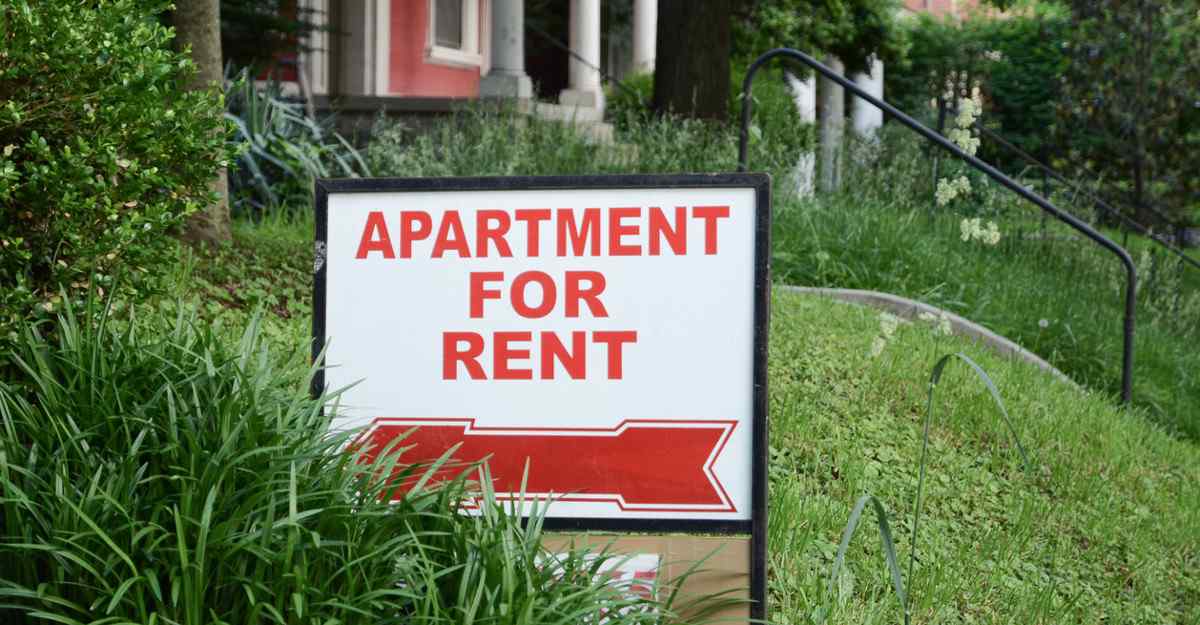What Credit Score Do You Need to Rent an Apartment?
Your credit score affects your chances for renting, but there are other important factors a landlord looks at when deciding whether to rent to you.

There are always roadblocks to finding a new place to live. You've got to find the right place in the right location, and you have to rent at the right time. For some, though, renting is even harder because of another barrier; i.e., their credit score. Let’s look at what type of score you need and what to do to bolster your chances even if you have a bad credit score.
Generally speaking, the credit score for apartment renting will fluctuate between the top of the "poor" range to the upper limits of "excellent." In terms of raw numbers, this usually means that the credit score needed to rent an apartment should be somewhere above 550, with the vast majority of apartments looking for scores greater than 600. It's possible to rent with a lower score, but you will be significantly limited in your choices if you drop below 550.
Why It Matters
Most landlords pay attention to the credit score for renting because it's a relatively good indicator of how likely a tenant is to honor his or her rental agreement. Lower credit scores tend to come either through significant amounts of debt or repeated late and missed payments. Both of these issues might make a landlord think that you will be unlikely to pay your rent, which will end up hurting their bottom line. It's very hard to determine whether a person is trustworthy, so most landlords rely on the credit score as a method for figuring out whether or not you are the type of person who will honor his or her commitments.
Variable Vs. Hard Limits
It's important to remember that the minimum credit score to rent apartment homes is something that varies from place to place. There are many apartment complexes, for example, that only look at the credit score as a single piece of your overall application. The score might be weighed against how much money you make each month or the references that you are able to provide from your former landlords. Other apartment complexes, though, view the credit score needed for apartment application approval as the most important aspect of approving an application. These communities tend to place hard limits on the credit scores of applicants and typically require any prospective renters to have higher credit scores than they might need elsewhere.
Private Vs. Corporate
Your credit score to get an apartment will typically also vary depending on whether you're looking at a corporate landlord or a private landlord. If you're renting from an individual, your credit score might not matter as much if you can put down the money for the first and last month's rent. In other cases, though, private individuals might require a much higher credit score simply because they have been burned in the past. Corporately owned properties almost always require you to furnish some type of credit score, but most tend to be very reasonable with their requirements. These properties want to fill up empty units, so their primary goal is to make sure that the renters have good enough credit not to cost the property company money in the long run.
What Landlords Want

It's always a good idea to go into your apartment search with a good idea of what your landlord wants. Remember, your credit score is just a quick way for your landlord to understand more about you as a potential tenant without having months to get to know you. Taking a little time to determine both what landlords actually want out of a tenant is a good way to make sure that you're able to rent even if you have a poor credit score.
Reliability
Most landlords are looking for reliability more than anything else. Credit scores help to show your reliability because they keep track of how well you pay off your debts. If the landlord can see that you have a habit of not making payments, he or she might reasonably assume that you won't pay your rent on time. Your credit score may also show whether you still owe money to a former landlord – a sure sign that you've either failed to pay your rent in the past or that you've done so much damage to a property that you owed the landlord a significant amount of money. If you've got a low credit score, it's natural for your landlord to assume that you might not be quite as reliable as he or she might like.
References
A credit score also works a bit like a reference. While it's great to get a letter of reference from a former landlord, the credit score works as a more objective reference as to your financial character. Many of your previous debts left a positive or negative remark on your credit, which tells the landlord whether or not you are the kind of person with which he or she will be able to do business. Seeing a strong credit history is a bit like having a good reference from several other businesses. Having poor credit, on the other hand, is more like getting warnings from others in the business community. It's easier for a potential landlord to take an applicant seriously if his or her credit references are outstanding.
Of course, you can have real references as well. These can help grease the wheels that may otherwise be sticky. Look for impressive references, and try not to use family members who share your last name.
Safety
Above all else, landlords want safety. They want to know that the person to whom they are renting out their property will not cause problems for the landlord. This not only means physical safety for the landlord but also safety for the home or apartment. If you've caused a great deal of damage to another property, the landlord will likely assume that you will do the same to his or her property. The best way for the landlord to figure this out at a glance is to take a look at your credit history. If you owe a substantial amount of money to another landlord, it can be inferred that you did not leave your last home or apartment in great shape. If your landlord wants to feel safe renting to you, he or she needs to be able to learn more about your past actions.
How to Improve Your Chances
It's always a good idea to know your credit for apartment searching. If you know that you have bad credit, though, your search isn't necessarily over. Instead, you'll just have to work a little harder to get into the apartment you want. Below are a handful of things you can do to improve your chances to get into a great apartment while you're working on repairing your credit.
Pay Attention to the Listing
First and foremost, you should pay attention to the apartment listing. It's rare to see an advertisement for apartments for rent no credit check required, though they do exist. Typically, apartments that have specific minimum incomes will be a little easier on their credit checks, as will those that are listed through private entities. Look to see if a property company is the owner of the complex, and then go online to check to see their average credit requirements. This will allow you not only to figure out how much weight the company places on your credit score, but also whether it's worth your time and money to submit an application in the first place.
Bring Proof
Your credit score doesn't necessarily reflect your ability to pay. If you want to ensure that you get a good apartment even with a bad credit score, you want to be able to bring proof that you will be able to make your monthly payments. It might be a good idea to bring along bank statements or receipts that show that you have made all of your rental payments on time, for example, or even proof that your credit score has been steadily rising. You may also want to bring an actual copy of your credit score to show that an unusual incident (divorce or a medical emergency, for example) is the culprit for your low score. If you can prove that you're a safe bet, more landlords will be willing to work with you.
Get a Letter of Reference
One of the best ways to put a future landlord's mind at ease is to get a letter from your existing landlord. Asking for a letter of reference shouldn't be too hard, especially if you left your last dwelling on good terms. Talk to your landlord and let him or her know that you've enjoyed living in your current home but that you have to move. Ask if he or she will provide a letter of reference to let your new landlord know that you make your payments on time and that you haven't caused problems. As you might expect, though, this one is only going to work if you were actually a good tenant. In most cases, though, landlords are happy to put in a good word for former tenants so long as they don't break the terms of their lease.
Put More Money Down
Money is the great equalizer. Apartments for rent with bad credit usually require their tenants to put down a bigger security deposit, simply because the landlord wants to minimize his or her risks. If you know that your credit score is going to fall below the threshold that a landlord usually sets, talk to him or her about putting down a bigger security deposit. An extra month's rent will usually make a landlord feel much more comfortable, though many will allow a much smaller deposit. Remember that this typically only works if you're renting with a private owner, though. Most corporate landlords can't really alter the terms of their applications. The good news, though, is that many larger complexes do use a scoring system that will put points in your favor if you have the ability to put down a larger security deposit.
Move Quickly
Since landlords are mostly in the business of making money, the best thing you can do to help your case is to make sure that your landlord can start making money quickly. If you have the ability to move quickly, there's a chance that your future landlord might be able to overlook a poor credit score. While it's good to have a perfect tenant, most landlords are primarily concerned with having someone paying the rent. If you can sign a contract immediately with a quick move-in date, many landlords will be happy to help you out. You may still have to provide other items on this list, but your chances of securing an apartment will absolutely go up.
Most landlords and apartment complexes want you to have a high credit score in order to rent. Your score won't need to be as good as it would be to get a mortgage, but it still has to be high enough to make your potential landlord feel comfortable. If you don't have a good score, it's not the end of the road. You'll just have to work harder to get the rental unit that you desire. If you can see through the landlord's perspective and help to bolster your own reputation, you'll be able to find great apartments for rent with bad credit that will fit your needs.





